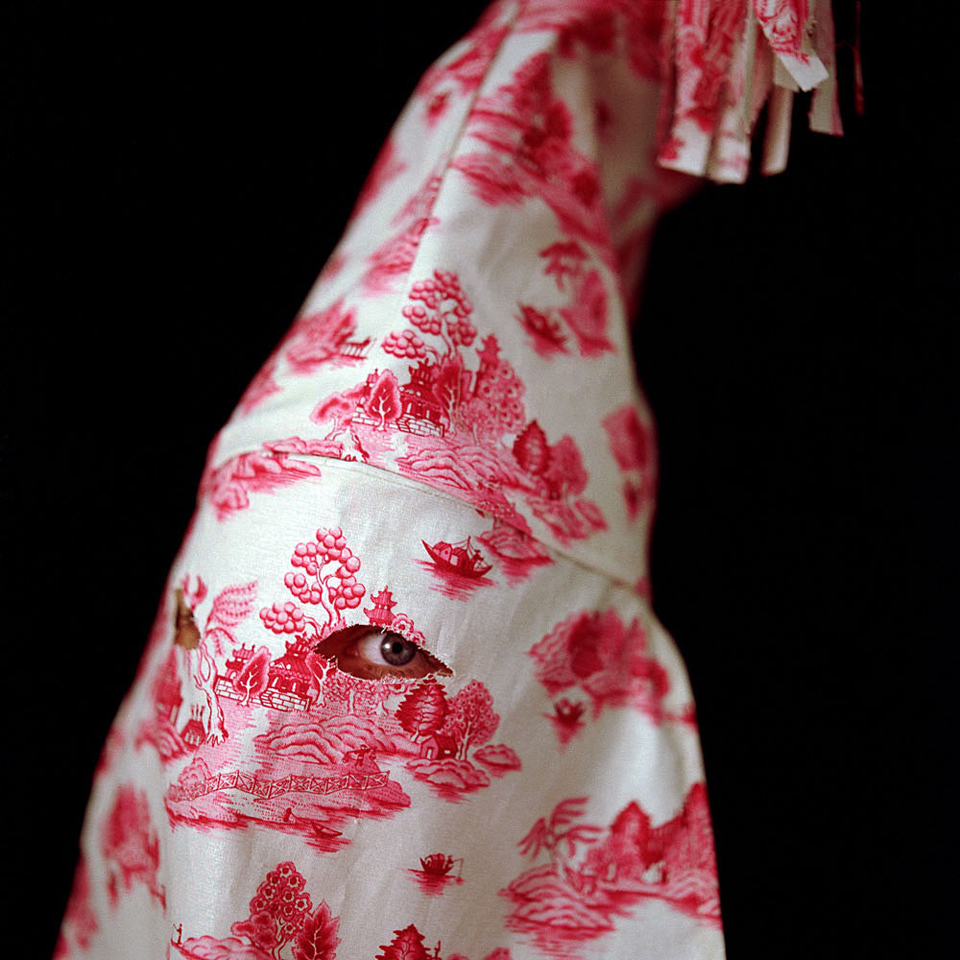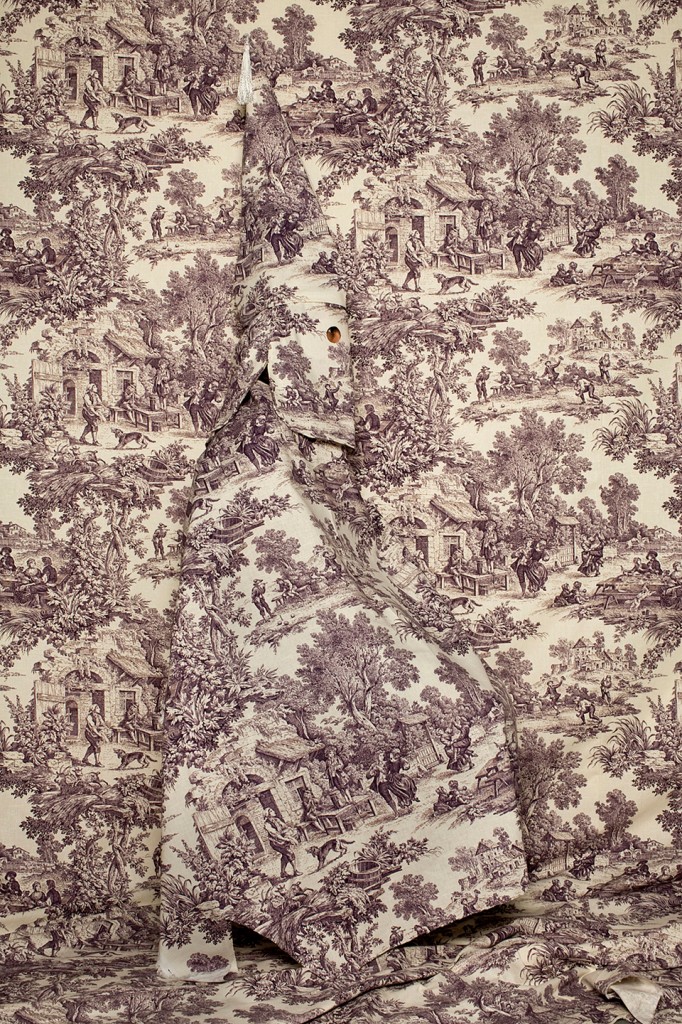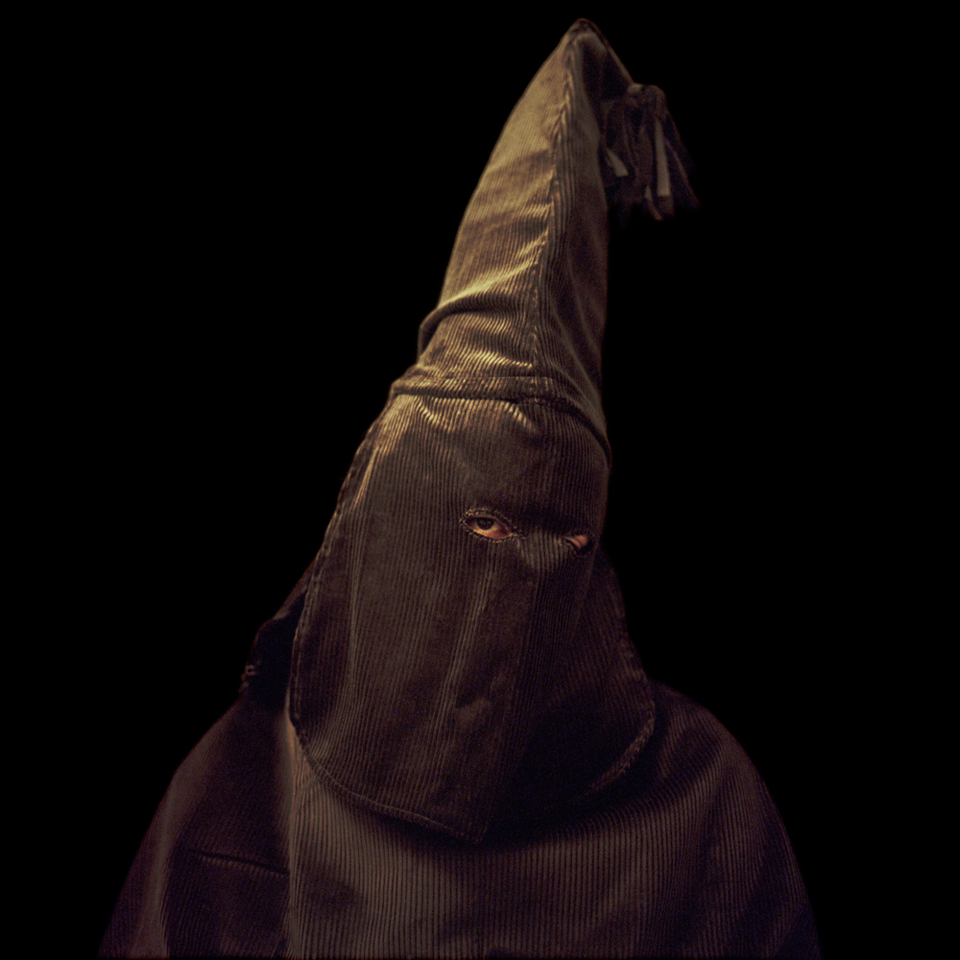Susan Harbage Page
People often try to relegate racism to history, pronouncing that “we don’t wear those white hoods anymore.” My question is: What’s beyond the white hood, the stark symbol of overt malice and terror? What does racism look like in today’s society? This project examines how racism persists in the present, in new and changing guises, often more covertly than in the past.
In 2007 I began sewing contemporary hoods based on a pattern I made from a 1920s Klan uniform. These new seductively disturbing hoods were made of pink silks, toiles, corduroy, seersucker, and children’s fabric with princesses printed on it. My goal was to place racism squarely on the shoulders of white people. I also implicated corporations and larger systemic entities with the inclusion of hoods made from Walmart bags and medical masks, asking the viewer to see how racism continues through hiring, management and medical practices. “Always” printed on the Walmart bags asks if it is possible to escape discrimination in a culture that still has not come to terms with global apartheid, colonialism, and the long-term effects of slavery.
In the process of sewing, I implicated myself, my gender, and the boundaries of home (an ostensibly safe space where racist values are often passed on from parent to child). My friends and family modeled the garments in this selection of photographs. In some images the difference between artifice and reality is revealed, street clothes peak out from beneath an eyeless hood, the edge of a backdrop reveals the blank wall behind it, or a brown t-shirt is exposed underneath a purple satin cape. These inconsistencies in the staging of the image become metaphors for racism that is constructed and put in place, hatred so bold that it is not completely masked or hidden as it is handed down to us like a suit of clothes.
Susan Harbage Page is a visual artist with a background in photography and site-specific installation. Her work explores immigration, race, gender, and nation. For almost ten years she has been making annual pilgrimages to the U.S.–Mexico Border to photograph the objects left behind by immigrants as they enter the United States.
Harbage Page has exhibited nationally and internationally at museums and public institutions in Bulgaria, France, Italy, Germany, Israel, the United States, and China. Her work has been collected by the Museum of Fine Arts, Houston, Texas, the Baltimore Museum of Art, Maryland and The High Museum of Art, Atlanta, Georgia. Amongst Page’s numerous awards are fellowships from the North Carolina Arts Council, the Camargo Foundation, and funding from the Andy Warhol Foundation and the Fulbright Program. She was awarded second prize in the Bernice Abbott International Competition for Women in Documentary Photography.
Susan Harbage Page is an Assistant Professor in the Department of Women’s and Gender Studies at the University of North Carolina at Chapel Hill.








